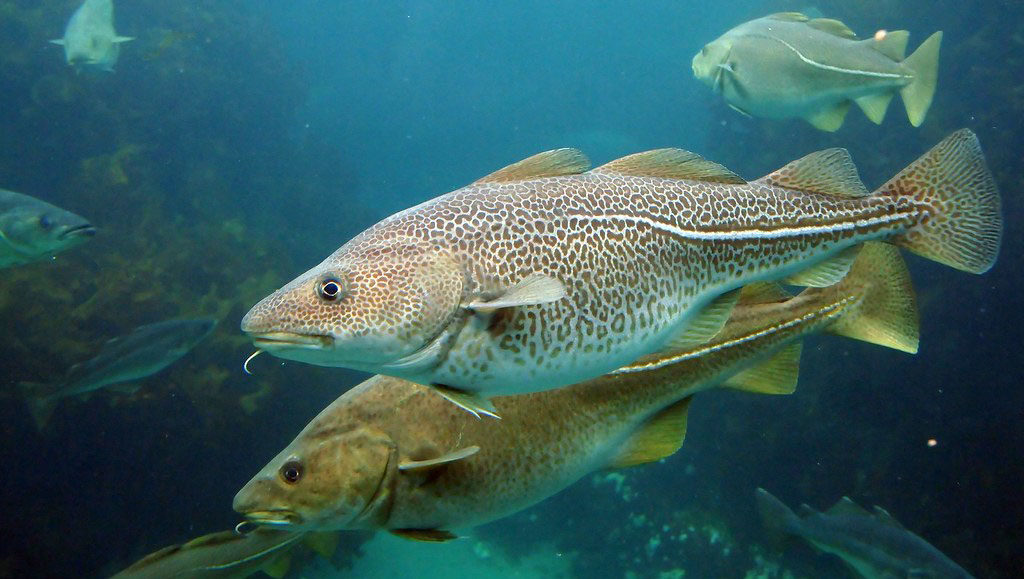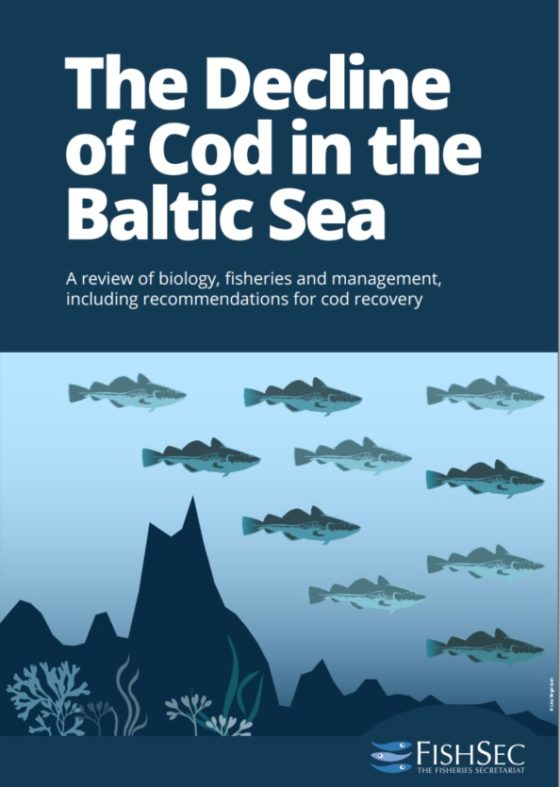
Stockholm, March 24 2022; The Eastern Baltic cod population used to be one of the largest cod populations in the Atlantic. Today, decades of overexploitation paired with eutrophication and habitat degradation have led to a dramatic decline in the two main populations (Eastern and Western) of Baltic cod. But it is not too late for the species to recover. If decisive action is taken to protect the fish themselves, as well as the ecosystem around them, it may thrive again. These are the conclusions from an analysis of The Decline of Cod in the Baltic Sea published by The Fisheries Secretariat today
The analysis provides a comprehensive review of published literature and reports on cod biology and environmental factors, as well as an overview of fisheries management, and relevant policy. The report gives a detailed overview of the factors influencing the decline of Baltic cod within the sea basin:
- Both the Eastern and Western Baltic cod population has declined massively since the mid-1990s
- Populations are now so low that cod cannot reproduce properly in the Baltic
- Large individuals have almost completely disappeared from the populations
- Until recently cod was one of the most important species fished in the Baltic sea, now it is only a bycatch in other fisheries
- Even after scientists advised to reduce fishing pressure the Baltic member states chose to allow overfishing of cod to continue
 Fisheries Secretariat policy officer and report co-author Sara Söderström says: “Our report shows that the collapse of cod populations in the Baltic was driven by a systematic TAC setting above scientific advice, or politically sanctioned overfishing, in combination with different environmental factors. The report also highlights the key gaps in the implementation of essential policy elements like Ecosystem Based Fisheries Management and preferential access for low impact fisheries”.
Fisheries Secretariat policy officer and report co-author Sara Söderström says: “Our report shows that the collapse of cod populations in the Baltic was driven by a systematic TAC setting above scientific advice, or politically sanctioned overfishing, in combination with different environmental factors. The report also highlights the key gaps in the implementation of essential policy elements like Ecosystem Based Fisheries Management and preferential access for low impact fisheries”.
“It is not too late to save Baltic cod,” says Jan Isakson, director of The Fisheries Secretariat. “Decision makers need to take a bold approach and implement sustainable management solutions across the board and actively work to integrate fisheries and environment policy and legislation.”
The Fisheries Secretariat report provides a set of nine concrete recommendation on fisheries management, sustainable improvements to fishing practices, as well as advances in environmental protection. If implemented with urgency, these actions will, would place Baltic cod on a road to recovery, allowing populations to increase again and form the basis of stable, sustainable fisheries in the future.
Download full report